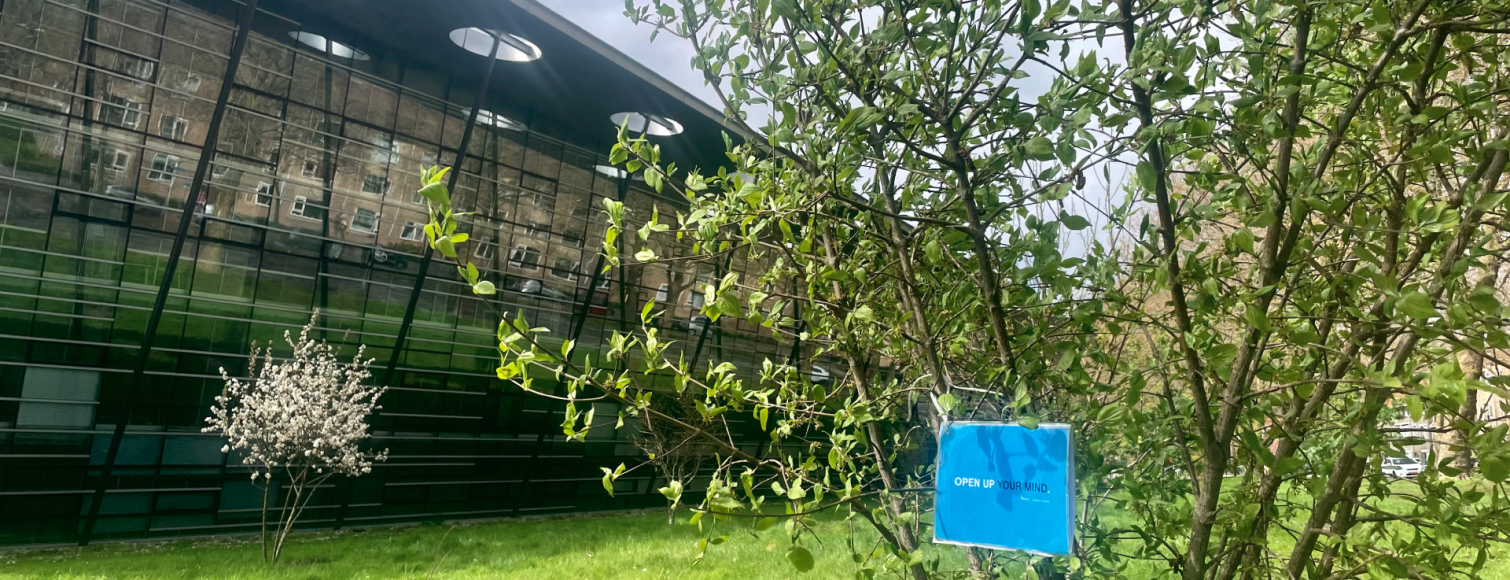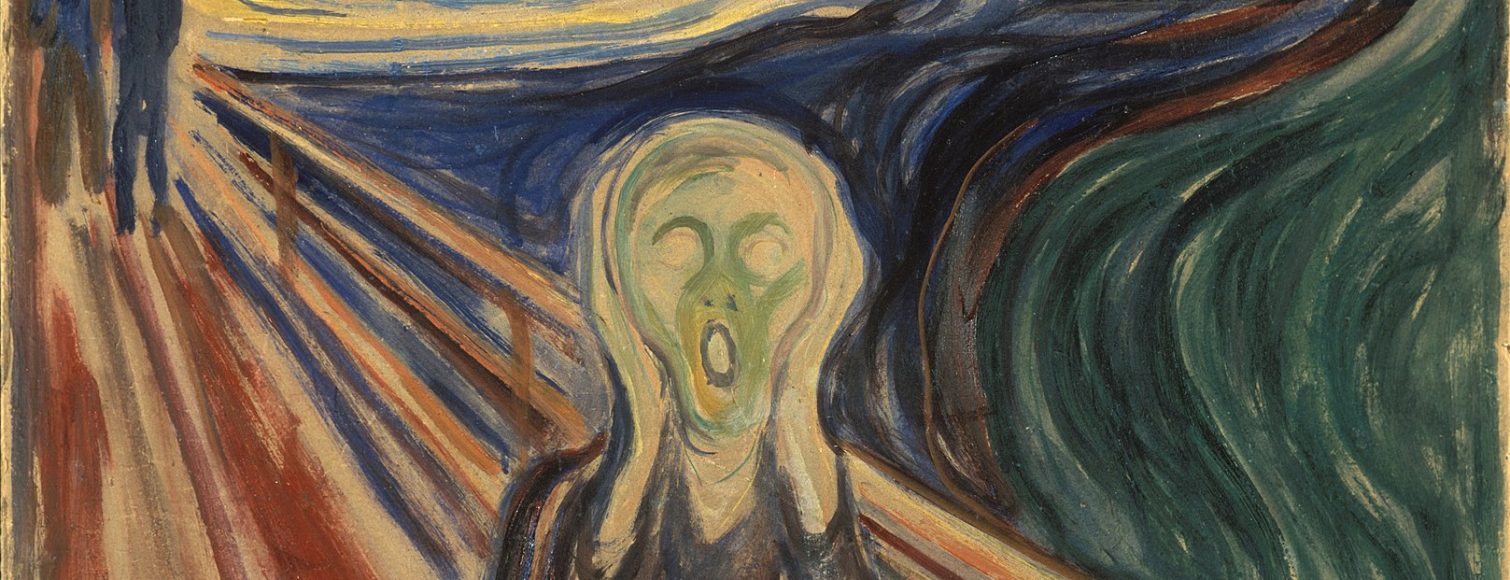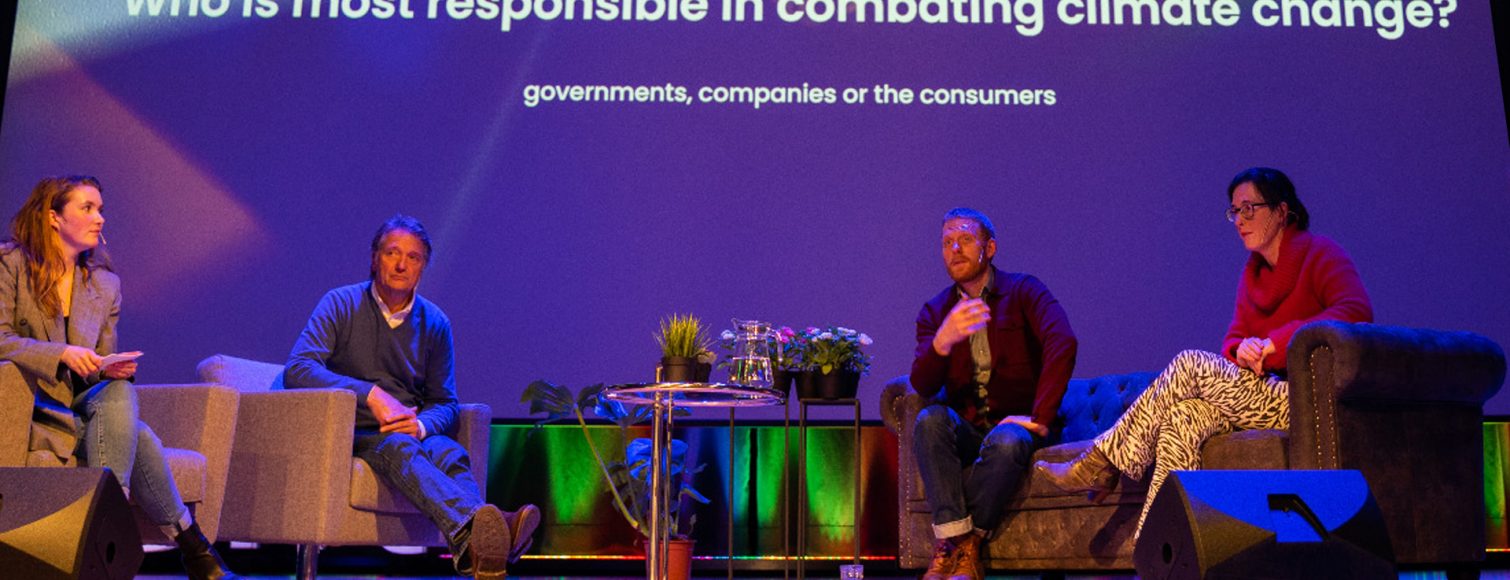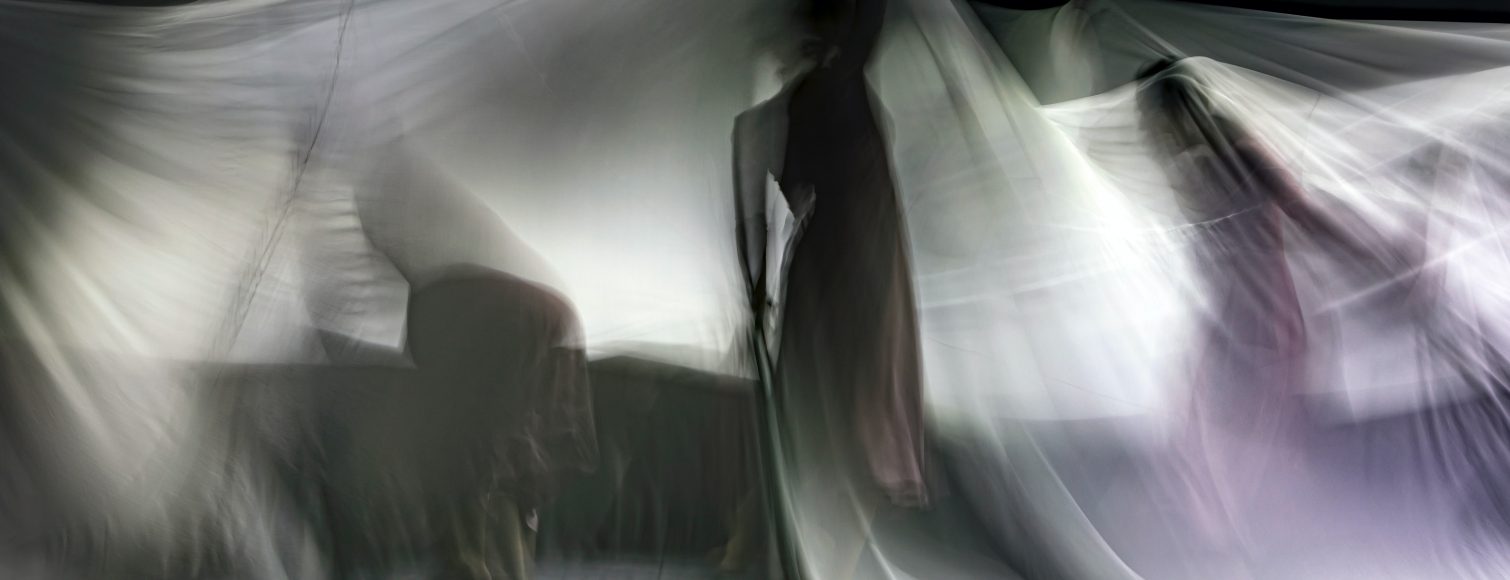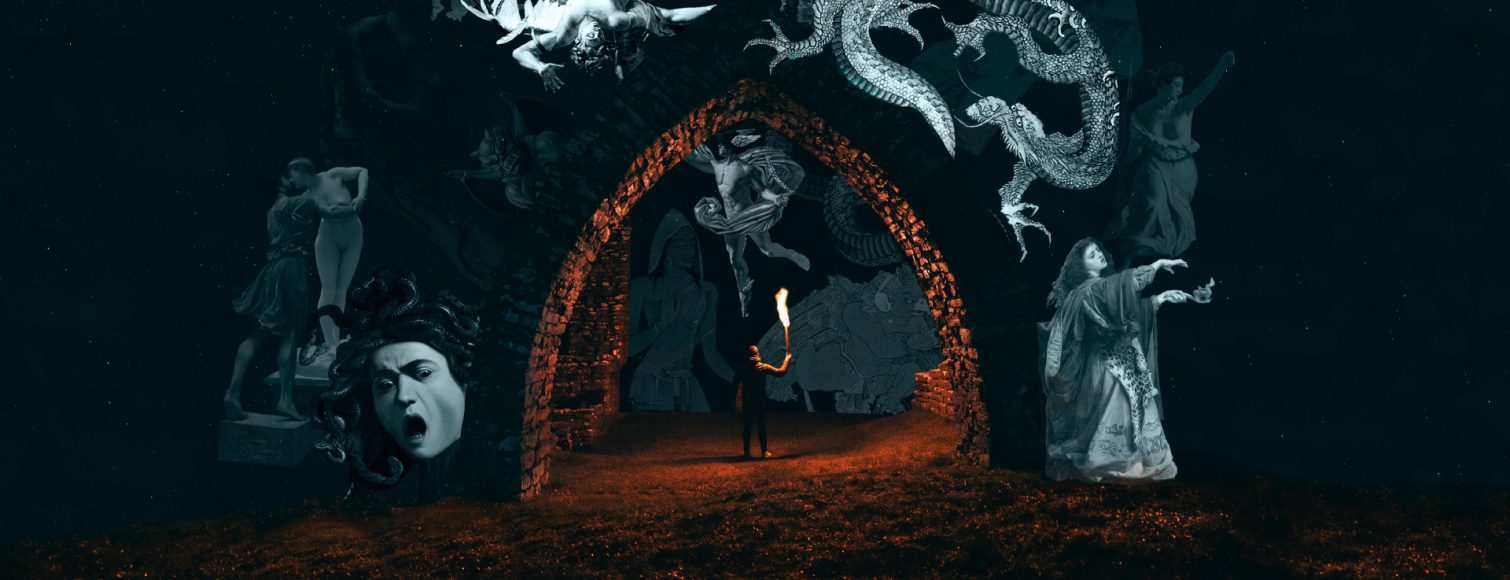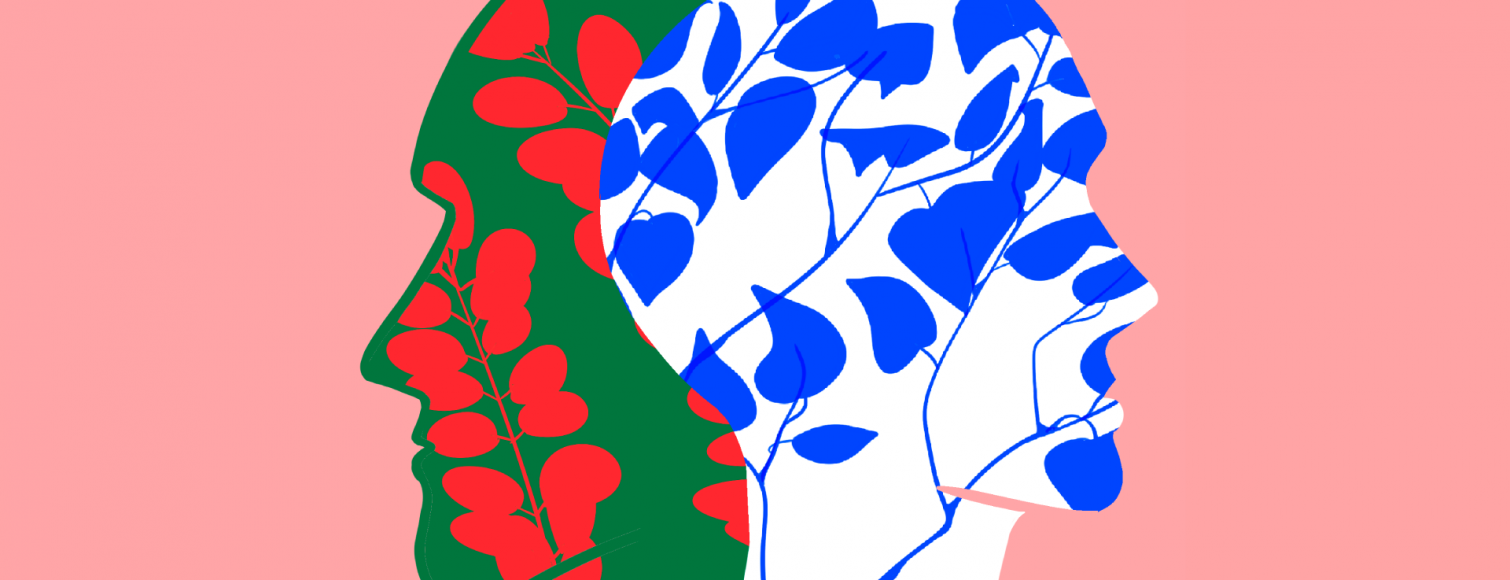Why are we afraid? A simple question, but the answer is – as is often the case with philosophers – not so simple. It starts quite simple. We can be afraid because our safety is directly at stake. From ourselves, or our loved ones. You could call it an evolutionary response, driven by hormones and physiology – think of the fight, fly, freeze response we can have in immediately threatening situations. For example, a good horror movie plays on this physiological response; we sympathize with the main character who is threatened by a monster or psychotic killer. Suddenly a knife appears, or a strange machine, and we are startled – just like the main character.
But we can also be afraid of things where our safety is not directly at stake, and then the story becomes more difficult. For example, we can fear the future, which is always indeterminate. What’s coming my way, especially as the years climb? But we can also be overcome with fear when the future seems completely fixed. That the life we lead – no matter how comfortable – seems to repeat itself ad infinitum. Afraid that this is it – this job, this partner… Then what are we afraid of? We are not in immediate danger, we can even lead a pleasant and successful life. And yet we can be overcome by a paralyzing fear.
Philosophers would say that this fear is existential in nature. That is to say, this fear is about human existence as such. This fear has to do with how we ‘are’ as people. For example, that when people know about our existence, we feel how the hourglass of time is emptying more and more, and that we only have the opportunity to do it right once.
Really good horror films also know how to respond to that. If a horror movie consisted only of physiologically threatening situations, it would quickly become boring. It only gets really gripping when the main character is confronted with how the demons and psychotic killers that creep up on him are partly caused by how he himself fails in his life. We see it in one of the most famous primeval horror stories – A Christmas Carol by Charles Dickens. A story that is of course scary because of the three ghosts that visit the main character Scrooge, but is especially drastic because the demons are the result of his own stinginess. He had a life to live, a choice in it, but he wasted it, preoccupied as Scrooge was with money. He thus created his own ghosts.
In horror films you see symbols that express this existential fear. Empty, undefined spaces, long corridors, cellars, for example, are powerful symbols. Of course those empty spaces are frightening in themselves, because a monster can just pop up and threaten life and limb. But those empty spaces also represent the emptiness and indefinition within ourselves. A je ne sais quo that can overtake us when the ravages of time gnaw at us, and we doubt whether we are living a successful or meaningful life.
We are here already very close to what is called the Unheimliche in philosophy; translated into English as the uncanny – we undoubtedly all know the latter from the concept of the uncanny valley. We come back to the Unheimliche early in the history of philosophy, for example with Nietzsche. But it really makes school in the twentieth century through an essay by Sigmund Freud and further elaboration by Martin Heidegger.
Freud describes the Unheimliche as the opposite of ‘heimlich’ – which of course can be beautifully translated into Dutch as ‘secret’, which refers to the domestic as well as the hidden or the insidious. But it’s not just the opposite. For example, you can say that the opposite of covert is something like the open. For example, we are clearly not at home here in this room, and we are not secretly together either. But that is not what Freud means by Umheimlich. He is concerned with what has been snatched from the secret. Something shows itself, because it really shouldn’t have been shown. The Unheimliche remains, as it were, glued to the Heimliche. And that’s what makes it so scary.
With Freud you can of course think of unconscious desires such as incest or parricide, which suddenly come to the surface. Desires that are socially taboo and that must therefore also be punished if they show themselves too emphatically. For example, in his essay Freud describes the story of the sandman by the eighteenth-century German writer ETA Hoffman. The sandman who throws sand in the eyes of little children at night so that they sleep. However, some children keep their eyes open – they see things in the dark that should not be seen. And as punishment, the sandman takes their eyes. According to Freud a symbolic castration, the punishment because a social taboo is broken. Basically a ban from the c ommunity, as we see in the story of Oedipus, who gouges out his own eyes after realizing he killed his father and slept with his mother, and who from now on wanders through Greece as a blind wanderer.
Mind you, this is not so much about just a law or code being broken. No, this is about showing what is actually very close to us – in this case about secret desires. The secret becomes secret at the same time. This also has everything to do with the second example that Freud mentions, namely the theme of the Doppelgänger or doppelgänger that appears in many ghost stories. Think of mirrors, in which the protagonist sees himself – sometimes distorted. Or to ghosts that seem familiar to us somewhere. To dead that don’t seem dead, like in the many zombie movies. We see ourselves again, but distorted and alienated. We recognize it, but then again we don’t. An experience we will all recognize is looking at ourselves in the mirror and watching how we become more like our parents with age. Who am I now? Of course, the uncanny valley is also an example of this – the area in which technology takes on human features, for example a robot with a human face, but is still just not human. Technology becomes our doppelgänger, but in a strange and therefore frightening way. Also consider how modern zombie movies are often a critique of modern consumer society. Often the difference between zombies and consumers who mindlessly stare at a screen for hours in those films is not that great. The modern consumer society creates a Doppelgänger of ourselves. A hollowed-out, soulless doppelgänger – but nonetheless still recognizable, and that’s why it’s so creepy.
Why is this so frightening now? We can imagine that superficially. The Doppelgänger threatens us, he threatens to displace us. In backrooms it is not for nothing that a robot pushes the main character into the abyss. But I think there is a deeper explanation, which again has everything to do with human existence or existence. Something is tormenting us, all of us. That does not always have to be manifest, it can also be a voice in the background. Nevertheless, it is there: the torment of knowing the passage of time, the ever-approaching future, and even the inevitable end, that never makes us feel quite at home in the life we lead. Am I making the right choices? Is this the job I want to have, the house I want to live in, the partner I want to be with?
The German philosopher Martin Heidegger, who has written very penetrating analyzes of human existence, calls the Unheimliche the fundamental fear of “not being at home”, or the Nichtzuhause signal. Remember, here too, being away from home is not just the opposite of being at home. It’s not about someone ‘not being there for a while’. No, the point is that it is precisely in being at home that not being at home is inevitable. As I see myself in the mirror at the same time as my father. Like I’m happy that I have a nice job, and at the same time I think: is this it? Just when I get home, I notice that I’m not home.
The Uncanny here stands for the fundamental groundlessness of human existence. That is not to say that, according to Heidegger, we come into the world as a blank slate. On the contrary, we are thrown into a world in which much has already been determined for us. Being male or female, for example, is clothed with meanings and expectations. But at the same time, in an existence that knows the time, there is always the possibility to see the current existence as a coincidence, a contingency: it could be different. And moreover: even the properties that seem necessarily connected to us, such as man or woman, are not self-evident. As Heidegger puts it, “we have to be.” We are not just like a stone. To be human is a task. For example, do we know what it is to be male or female? Even in what seems so obvious, we are not at home. It may even be the case that what sticks to us the most, our origin, our gender, the color of our skin, surprises us the most – because what are we to do with it? That may be why many of today’s debates about gender, color, inclusion, etc. are so toxic. Something is shown here that should not be shown. That which seemed so obvious, is not so obvious at all. That we are not even at home in our own country, for example.
And, to make it even more oppressive, but that’s okay in an evening where it’s all about fear, human existence is permeated with the awareness that it will end someday. A Sein zum Tode as Heidegger says. We don’t die just like that, no, death is always present – which gnaws at us when we wonder if this is the job what we want is nothing less than death itself. After all, without our mortality, such questions would lose their meaning. After all, what is the meaning of a choice, in the light of eternity?
Death presents us – also here and now – with choices. You can even wonder, looking at Freud, if death isn’t our final doppelgänger, insofar as he holds up a mirror to us and we have to ask ourselves: is this the life we want to live?
For example, Heidegger radically extends the theme of Unheimlichkeit, which in Freud has to do with secret desires. We are not at home in our own house, human existence is fundamentally groundless. The question, of course, is what we should do with this. One way, of course, is to cover up that homelessness, as it were. We cover it up with daily routines, and say: we can’t do anything else. I have to work, because I have to be able to pay the mortgage anyway. Or we flee into consumption or other mindless activities. But it is precisely through such covering-up activities that fear and groundlessness can suddenly overtake us completely. And life does tend to confront us sooner or later with the question of what constitutes a meaningful life. A love breaks down, we are fired, a loved one dies… We experience that we are less at home than we thoughtlessly assumed.
For Heidegger, this fear also offers an opportunity. The fear reminds us of how we are absorbed by routines, Heidegger argues. In fear our decay shows itself, and thus offers us the possibility of a more authentic existence. An existence in which we consciously relate to our choices, in the light of temporality. We don’t just live, but take on our existence. We also give space to the nomadic, to the coincidence of things – and sometimes dare to roam further, to let go.
To be honest, I always have a bit of a hard time with Heidegger here. I never quite know how to take on existence, and it also sounds very individualistic to me: You have to be. I don’t know if people can be consigned to a crushing existential dread in that way.
Rather, I think that over time people have managed to give shape to that in itself completely indefinable fear through all kinds of rituals and customs. Religion and art are two wonderful examples, which – if with the right depth – allow the fear of the groundless existence, without it being crushing. They express finiteness and contingency, but as such they also help to keep it bearable, as mediators between the strange and the familiar. As is also this evening. It also makes it possible to bear the Uncanny together, so that we are not alone. I am therefore wary of the tendency to exclude religious signs from the public domain. I am not religious myself, but I understand how religious signs can help to keep the crushing groundlessness bearable. Just like a tombstone or a mourning band helps not to have to constantly deal with the crushing experience of losing someone. In conclusion, I would therefore like to argue that we should not leave each other alone in the experience of the Uncanny. It is precisely when it comes to the core of being human, the groundlessness of existence, that we need each other. And especially mediating faculties such as art and philosophy, and in a way religion. They are no frills to human existence. They are a dire necessity to give some ground to our own groundlessness.
Leon Heuts – Head of Studium Generale
This article was presented at the Philosophical Café about Fear in Theater de Veste on April 17th 2023.

